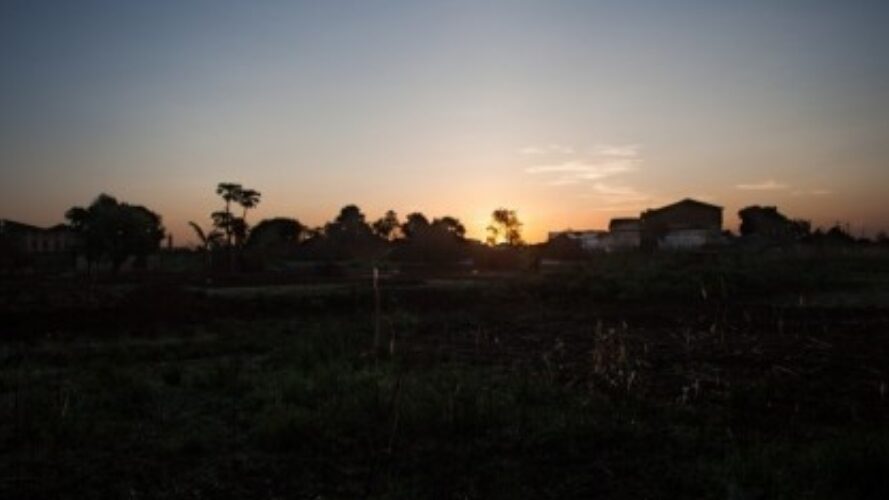First Arrest as IJM Gulu Takes on Domestic Violence
Domestic Violence
On April 26, 2018, a man who had brutally beaten his wife over many years was arrested by police in Gulu, Uganda. This is the first case of domestic violence that IJM has taken on, as part of a new pilot project this year in Gulu.
The woman in this case, Akello* had endured abuse for 10 years of her marriage. On multiple occasions she sought help through mediation, but she never felt like she could leave the situation because she was dependent on her husband to feed and send their two young children to school. It was a particularly violent attack a few weeks ago which finally pushed her to try something different, and bring legal charges against him.
Women in northern Uganda often face barriers to reporting domestic violence. For many women, they rely on their partner for support. They have little to no source of income of their own to care for themselves and their children. Additionally, it can be frowned upon in the community to make a public issue of what people perceive to be a private or family issue.
In 2013, the Uganda Bureau of Statistics found that approximately 70% of women between the ages of 15 and 49 experience some form of violence from their spouse or partner. Further, a 2012 study found that of the 1,880 patients admitted for trauma to Gulu Hospital, nearly a quarter were admitted due to physical trauma caused by domestic violence.
During the course of the Gulu domestic violence pilot, which will run through all of 2018, IJM will take on up to 10 cases of extreme domestic violence, working with government partners and police to provide aftercare support for the women and their children, and pursue the arrest and prosecution of perpetrators. The purpose of the pilot will be to determine whether successful arrests and prosecutions will be effective in deterring violence against women in the home.
Through years of work in land theft, protecting the rights and safety of widows to inherit property after their husbands die, the IJM staff have seen that it is possible for community beliefs and behavior to change. In places where widows were assumed to have no rights as heirs, they now find protection from community members, and they can go to trained police for support when their rights are abused.
The same can be true for survivors of domestic violence. For years women in Gulu have lived and suffered in isolation, because they have not had a protector. Now, IJM will explore what is possible when the public justice system is equipped to respond to domestic violence, and when communities recognize that the violent abuse of women will not be tolerated. These cases will not be easy, and we will need to support survivors both as they fight for justice, and as they find new ways to support themselves and their children.
When we met Akello, we saw a woman who above all else loves her children and wants to be able to provide them with the best life she can. We saw an entrepreneurial woman who works hard and has already started a small business selling the vegetables she grows. As we walk beside her to prosecute her abuser, we will also be supporting her to heal from the trauma she has experienced, and to expand her business so that she can be fully self-reliant and free from fear.